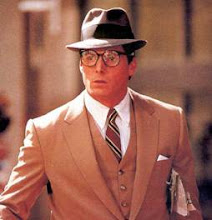As a writer, i think I would be able to do this. It would require much more time and effort on my part, but I presume it's possible, even for an undergrad like myself. I would wonder about the truth of my statements and presumptions/examples, however. If I don't talk to the subject, how can I be sure my profile is an accurate representation of his/her person. I suppose in some ways, observing the person for such an extended period may prove more accurate in the long run. Subjects lie and change facts/mold histories when you speak to them directly; people are fallible. During an interview, subjects try to put the best version of themselves on display. hmmm...
I felt "The Road is very Unfair" was an interesting article. It was so long, however, that I felt, at times, the focus on AIDS was lost. I would become absorbed by the stories of individual characters, by the dangers they faced (in this instance, not sexually-transmitted dangers), by the history of the region, and the journey of the trucking convoy. I thought the article ended oddly; the focus on the previously unknown/not mentioned turnboy. I felt the ending was hurried, that Conover tried to summarize his focus too simply and sweetly.
